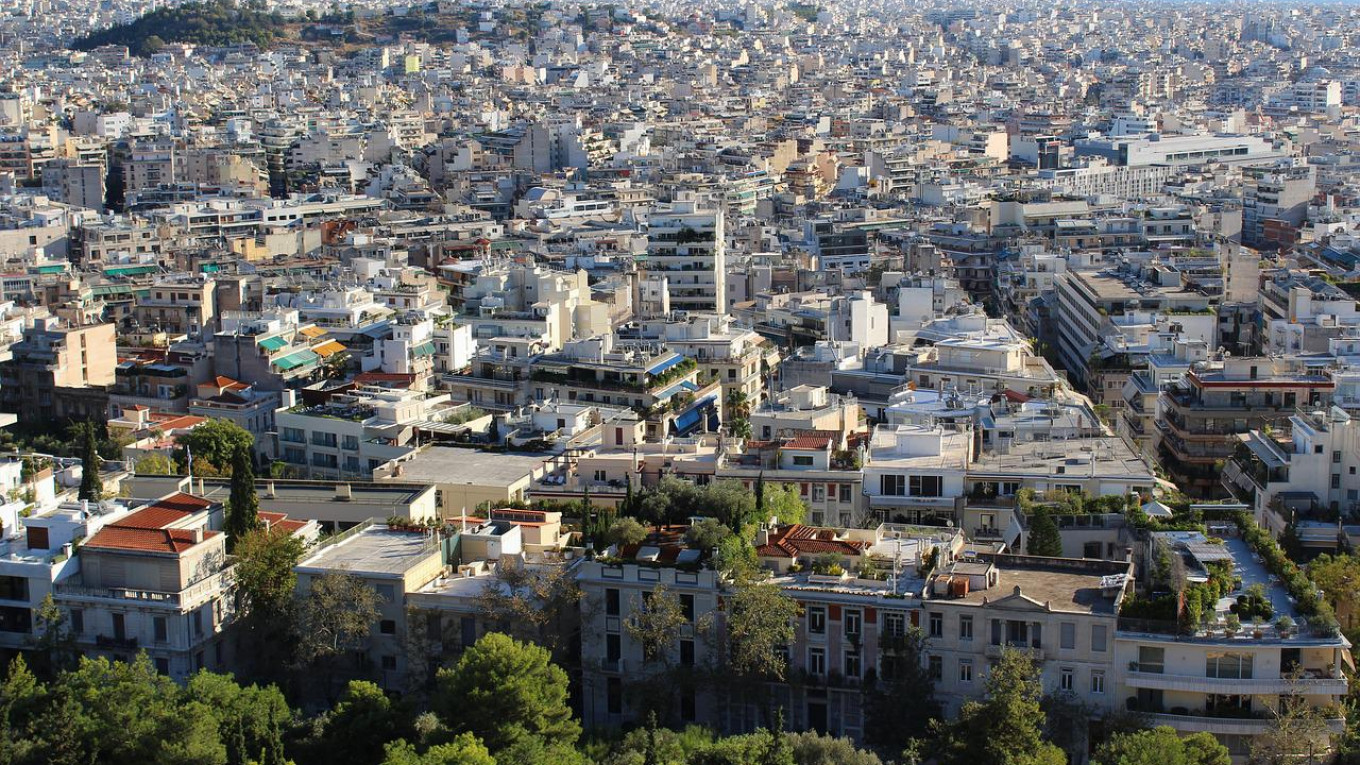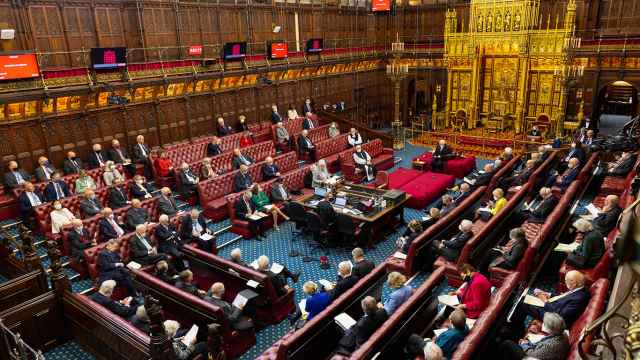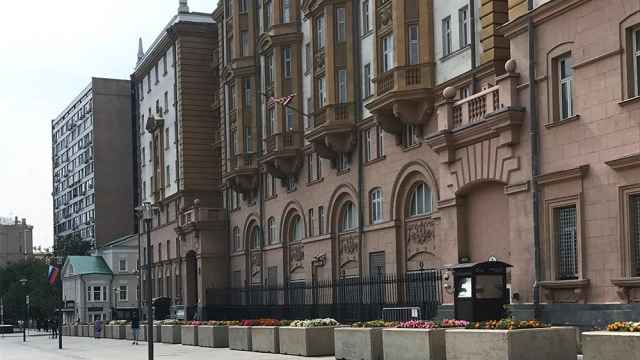(Bloomberg) — George Kachmazov, a Russian realtor, is buying up property in Athens.
The Moscow-based chief executive officer of real-estate platform Tranio.com has bought a building in the Greek capital and is in the process of acquiring five others with a view to selling apartments to international investors.
For Kachmazov, the sales pitch is clear: buying property in Greece can give an investor a so-called golden visa to the country — and with it an entree into much of Europe. What’s more, the country’s real estate market may be poised for a rebound, helping buyers make some money on their purchase.
“Greece’s real estate market is one of the remaining few in Europe that hasn’t recovered since the 2008 economic crisis,” Kachmazov said in an interview in Athens. Prices in Spain, Portugal, Ireland, Poland and Hungary are heading toward pre-crisis levels because of high liquidity in Europe, he said.
Kachmazov is among agents making a beeline for Greece to help property hunters from Russia, China, Turkey and elsewhere bet on a market that may be on the cusp of a revival as the country exits its bailout program in August 2018.
Property prices in Greece have fallen more than the 25 percent contraction in the economy since Europe’s sovereign debt crisis began in 2008. Prices of apartments in Athens more than five years old shrank by 45 percent between 2008 and June 2017, according to Bank of Greece data.
Capital Gains
“The belief is that the worst is over and that this is a good time to take advantage of the low prices and to benefit from future capital gains as the market recovers,” said Carrie Law, CEO of Juwai.com, a Chinese international property website.
Juwai this year signed an agreement with Warren Buffett’s real estate brokerage firm to advertise homes in the U.S.
The average price per square meter in Greece is 2,846 euros ($3,369), according to Germany-based statistics company Statista.
That’s almost 1,000 euros cheaper than Portugal, which has a similar golden visa program for property buyers, one and a half times cheaper than in Spain and Germany, and almost three times cheaper than in Italy and Austria. Greece is more expensive than Bulgaria, Croatia, Romania and Estonia.
While Kachmazov’s targets are mainly Russian investors, they also include Turks, Arabs and Chinese buyers who want a golden visa for access to the European Union’s passport-free Schengen area and who want to “diversify away from local risks and get an income in hard currency,” by renting apartments out to tourists or students.
Why Athens?
“The country’s residence-for-investment scheme is the best in Europe as it’s cheap at 250,000 euros; property in Greece is cheap; yields for short-term rentals are high, and the country’s growth potential is greater,” Kachmazov said.
In Portugal, an investment of 500,000 euros in any real estate project or of 350,000 euros in a 30-year-old property can get you a resident permit under certain circumstances.
Another draw for investors is the returns they can make from their Greek property. The country’s tourism industry is stoking an increase in demand for short-term rental properties, which combined with “significantly” low property prices, means there’s an opportunity to generate high rental yields and capital gains, Kachmazov said.
Visitor numbers in the nine months to Sept. 30 rose 10.3 percent from the same period of 2016, according to the Bank of Greece.
EU Visa
Property inquiries in Greece from Chinese buyers rose almost 159 percent in the third quarter compared to the same period of 2016, Law said. For Chinese investors, getting a resident visa is the key reason to invest in the country, she said.
“It’s one of the more lax visas that allows you to use property investment to get yourself onto the path toward EU citizenship,” Law said. Additionally, Greece is three to four hours closer by air to China than Barcelona and Lisbon, two other popular cities in countries that also have appealing investor visas, she said.
Greece awarded 2,053 golden visas between 2013 and October 2017, with Chinese investors accounting for 43 percent of them, according to Enterprise Greece, the state agency responsible for promoting investments and exports.
Russians are in second place with 18.6 percent and investors from neighboring Turkey third at 8.4 percent. Greece has raised more than 513 million euros in foreign investments from the visa program.
Bank e-auctions
Both Kachmazov and Law said that there’s a great deal of interest in properties that Greek banks are auctioning as part of efforts to shrink non-performing exposures. Lenders are trying to meet bad loan reduction targets to avoid raising capital.
“We aim to participate in Greek real estate e-auctions and to acquire properties directly from banks,” Kachmazov said. Law says she is seeing similar interest.
“We have some buyers who are very interested in Greece’s e-auction process,” she said. “They believe it will offer opportunities to purchase at the bottom of the market.”
A Message from The Moscow Times:
Dear readers,
We are facing unprecedented challenges. Russia's Prosecutor General's Office has designated The Moscow Times as an "undesirable" organization, criminalizing our work and putting our staff at risk of prosecution. This follows our earlier unjust labeling as a "foreign agent."
These actions are direct attempts to silence independent journalism in Russia. The authorities claim our work "discredits the decisions of the Russian leadership." We see things differently: we strive to provide accurate, unbiased reporting on Russia.
We, the journalists of The Moscow Times, refuse to be silenced. But to continue our work, we need your help.
Your support, no matter how small, makes a world of difference. If you can, please support us monthly starting from just $2. It's quick to set up, and every contribution makes a significant impact.
By supporting The Moscow Times, you're defending open, independent journalism in the face of repression. Thank you for standing with us.
Remind me later.






